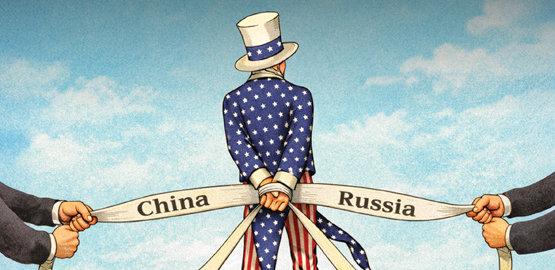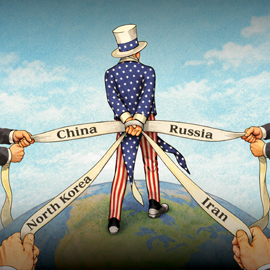Since the end of World War II, virtually every president has attempted to reset U.S.-Russia relations. Harry S. Truman confided in his diary that he was tired of “babying” the Soviets when they didn’t carry out the obligations they had undertaken at Yalta. Dwight D. Eisenhower’s “Spirit of Geneva” sought to make a new start with Stalin’s successors. John F. Kennedy sought to recalibrate relations with his disastrous Vienna summit, in June 1961, which paved the way for the Berlin Wall and the Cuban Missile Crisis. Richard Nixon sought détente with the increasingly sclerotic Brezhnevite leadership. Jimmy Carter also tried to change the terms of U.S.-Soviet relations early in his term, as did Ronald Reagan, who famously proposed a new strategy—“We win, they lose.” Some of these resets were based on the need to get tougher with Russia and some were based on a desire to find common ground. But after the Cold War, all of the efforts went unrequited. The specific irritants in each case were different, but at the end of the day, all of them failed because the Russian reform project faltered in the late 1990s. As a result, rather than joining the liberal international order, Russia became a revisionist state whose fundamental orientation limited the scope for successful engagement with Moscow. That is why Trump’s reset will almost certainly fail—and a good thing, too, since accommodating Moscow’s current demands would almost certainly mean sacrificing traditional U.S. interests.
For almost three decades, CSBA has been a reliable source of independent, path-breaking research focused on the future of defense.


The heart of CSBA is our staff of uniquely qualified defense experts who conduct in-depth strategic and budgetary analyses.
Latest News
Hostages, Assassinations, and the Future of National Defense
Eric and Eliot discuss the multinational hostage return deal with Russia, the Israeli strikes in Beirut and Tehran, and the recent release of the National Defense Strategy Commission report.
News Coverage: National Defense Strategy Commission Report
Five CSBA experts significantly contributed to the efforts of the Commission on the National Defense Strategy for the United States. We invite you to explore a selection of related news coverage.
Podcast: Paul Nitze: National Security’s Forgotton Man
Eric and Eliot host James Graham Wilson, an historian in the Department of State's Historian's Office, to discuss his new book, America's Cold Warrior: Paul Nitze and National Security From Roosevelt to Reagan.
US faces growing threats, and we’re woefully unprepared. Here’s how to fix that.
The national security threats against the U.S. are as significant as and more complex than they were at the height of the Cold War or even World War II. We are not prepared to meet these threats today and could, in very short order, find ourselves in a war across multiple theaters with peer and near-peer adversaries that we could lose.
CSBA Welcomes New Team Members
The heart of CSBA is our team of uniquely qualified defense experts and operations professionals. We are thrilled to introduce staff who have joined our team in 2024 and those who have recently stepped into new roles within our organization.
Video: Eric Edelman and Mara Rudman on U.S. Military Readiness
The Commission on the National Defense Strategy Vice Chair Eric Edelman and Commissioner Mara Rudman talk about the bipartisan panel’s report on U.S. defense strategy and military readiness.























